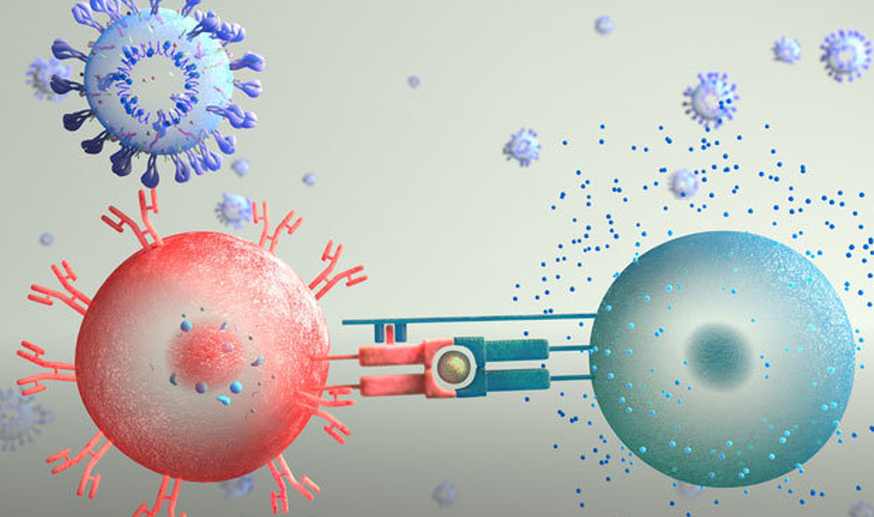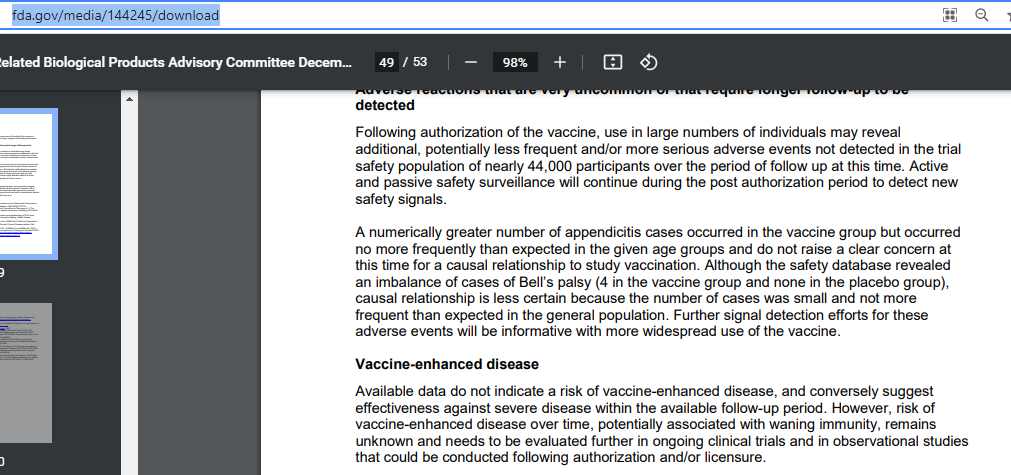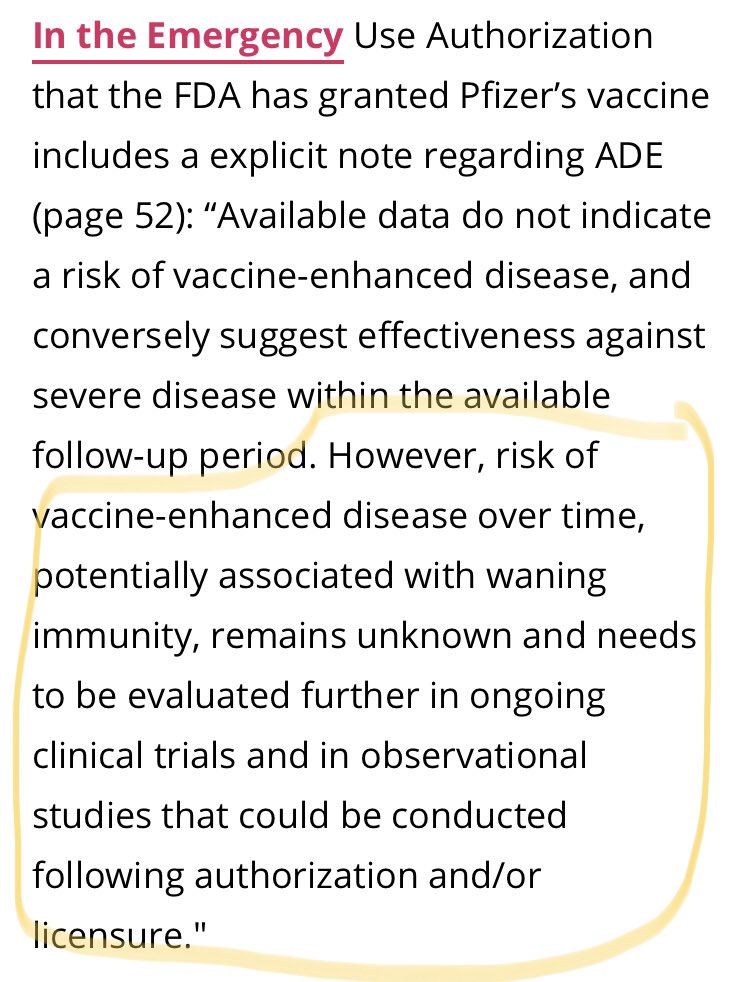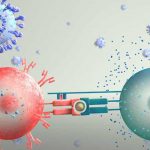Does high viral load in vaccinated people have anything to do with ADE (Antibody-Dependent Enhancement) caused by waning immunity?

The Centers for Disease Control and Prevention (CDC) announced yesterday in its recent report that the high viral load in vaccinated people infected during the recent outbreak in Massachusetts demonstrated that “vaccinated people with breakthrough infections can spread the Delta variant” to others. The new CDC study found that the Massachussets COVID-19 outbreak “mostly infected the vaccinated,” with few needing hospitalization.
Per Wikipedia, a breakthrough infection is a case of illness in which a vaccinated person becomes sick from the same illness that the vaccine is meant to prevent. In other words, the infection occurs when vaccines fail to provide immunity against the virus or pathogens they are designed to target.
The pivotal CDC study published Friday details a COVID-19 outbreak that started July 3 in Provincetown, Mass., involving 469 cases. The sobering scientific study found that vaccinated people made up three-quarters (75%) of those infected in a massive Massachusetts covid-19 outbreak.
Vaccinated people made up three-quarters of those infected in a massive Massachusetts covid-19 outbreak, pivotal CDC study finds https://t.co/nQbAIctsos
— The Washington Post (@washingtonpost) July 30, 2021
The CDC study further offers key evidence to support the hypothesis that vaccinated people can spread the more transmissible variant and may be a factor in the summer surge of infections. In addition, another data from the CDC also found that “fully vaccinated individuals could have higher levels of virus and infect others.”
On its website, the CDC wrote: “Today, some of those data were published in CDC’s Morbidity and Mortality Weekly Report (MMWR), demonstrating that Delta infection resulted in similarly high SARS-CoV-2 viral loads in vaccinated and unvaccinated people.”
This leads to this simple question: If the vaccine is supposed to reduce the virus, why are fully vaccinated individuals having a high viral load? The answer to this question may be found in a study conducted in Israel in early February.
The study may also shed light on the potential connection between the vaccine and a mechanism or process called Antibody-dependent enhancement (ADE). So far, there have been no documented reports of ADE with covid-19 vaccines. However, the concerns about ADE with COVID-19 vaccines have resurfaced with the rise of Delta variants.
What exactly is ADE? To put it simply, ADE is a phenomenon that occurs when antibodies can’t neutralize a virus but instead increase its ability to infect cells, making the disease worse. According to a piece from Davidson Institute in Israel, “ADE is a process where antibodies developed in a body against a certain disease could lead to an over-activation of the immune system against that disease the next time the body encounters the pathogen. Should it occur, the antibodies won’t improve the body’s reaction to the disease, but rather lead to a more severe condition.”
According to Nature Magazine, the ADE phenomenon is often observed when antibody concentrations decrease as a result of waning immunity. “An antibody may neutralize potently at high concentrations but cause enhancement of infection at sub-neutralizing concentrations,” Nature wrote.
Amit Binyamin of Davidson Institute said that there was a “concern that this phenomenon would also occur with COVID-19, and so the subject was studied extensively by many specialists.”
“Scaremongering on social media, such as talk of “vaccine addiction” or claims that “the decrease in antibodies will lead to the fatal disease ADE within six months” are based on partial truths, cherry-picking (taking information selectively out of context) and lack of understanding,” she wrote.
Binyamin also gave an instance of the initial findings regarding the British variant, which found that those infected by the variant, have not reported ADE. She went on to say that with more new variants of the disease spreading, we could further examine if any ADE cases occur when people are reinfected with different variants of the virus. Binyamin however admitted that “it cannot be unequivocally determined that the risk of ADE is nonexistent.”
However, what really caught our attention is an explicit note regarding ADE on page 49 of the FDA document when the agency granted the Emergency Use Authorization (EUA) to Pfizer’s vaccine. Below is what the FDA said. The bold emphasis is ours.
“Available data do not indicate a risk of vaccine-enhanced disease, and conversely suggest effectiveness against severe disease within the available follow-up period. However, risk of vaccine-enhanced disease over time, potentially associated with waning immunity, remains unknown and needs to be evaluated further in ongoing clinical trials and in observational studies that could be conducted following authorization and/or licensure.”


Update
New Title: “Does high viral load in vaccinated people have anything to do with ADE (Antibody-Dependent Enhancement) caused by waning immunity?”
Old Title: Does high viral load in vaccinated people have anything to do with ADE (Antibody-Dependent Enhancement) which could result in waning immunity?




